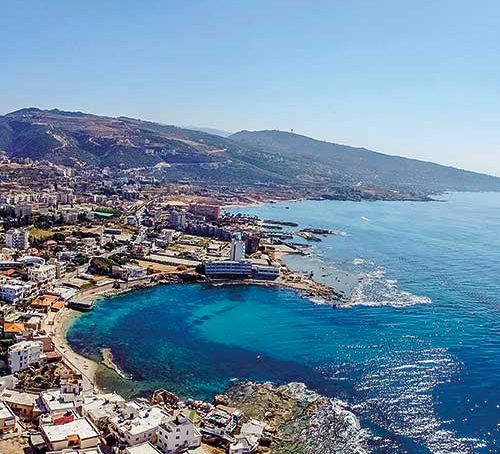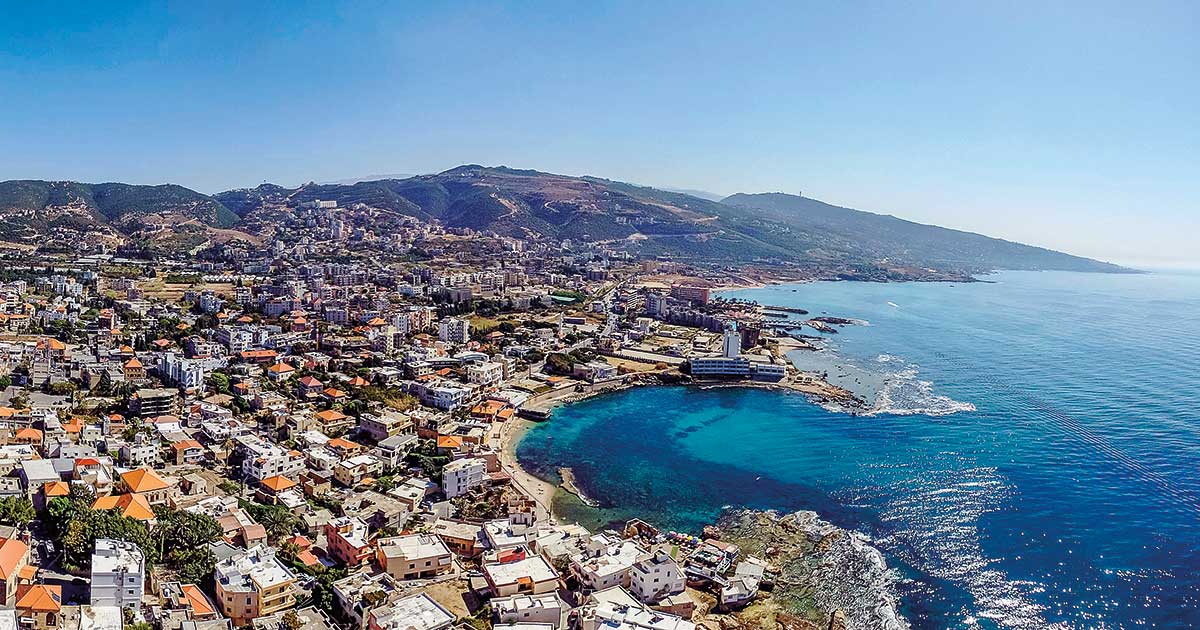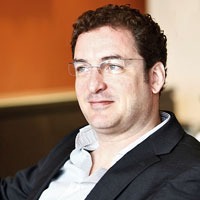Lebanon’s great potential, touristic advantages and unique assets make it a one-of-a kind destination in the region. But when can we expect the next all-important step in tourism develpment? Ralph Nader, CEO of Amber Consulting, issues an urgent wake-up call
Tourism importance and impact
Alongside generating income, employment and foreign-exchange earnings are two of the most important economic features of activities related to the tourism sector. In Lebanon, the tourism sector plays a major role as a driving force of economic development. Travel and tourism (T&T) contributed USD 9.3 billion to GDP in 2017, accounting for 18.4 percent of the total. As one of the largest employers, T&T directly supported 131,500 jobs, representing 6.4 percent of total employment. In terms of segmentation, the bulk of visitors fall into the leisure category, which accounts for 92 percent of spending, with only 8 percent of spending coming from business travelers, and anticipated growth forecast at 0 percent.
Tourism, what we know
Summer destination. Having direct access to 225km of Mediterranean coastline, Lebanon is known as a beach destination, offering a variety of beach clubs and resorts, from the luxurious, high-end types to the laidback, simple beach bars.
Culinary richness. The Lebanese cuisine is renowned across the globe. Being exposed to a unique cultural history and located in a favorable geographical position have made Lebanese food one of the richest and most multicultural cuisines in the world.
Cultural heritage. The long list speaks for itself; Lebanon has, at one time or another, been home to the greatest civilizations in history, including the Phoenicians, Egyptians, Greeks, Romans, Persians, Crusaders, Mamluks and the Ottoman Empire. It boasts a diverse combination of history and culture that has provided the country with no less than five UNESCO World Heritage sites at Anjaar, Baalbek, Byblos, Qadisha Valley, the Forest of the Cedars of God and Tyr.
Festive feel. During the summer season, Lebanon hosts over 15 international music and entertainment festivals, including Baalbeck, Beiteddine and Byblos, featuring local and international artists. In addition, the Lebanese nightlife scene is one of the best in the world, kicking off at happy hour and running through until sunrise.
Time for improvement
Outlining the new vision for the industry, Lebanese Prime Minister Saad Hariri said: “Tourism provides about 20 percent of the national income and I want it to reach 40 or 50 percent.” In its Lebanon Economic Vision, 2019, Mckinsey highlighted the importance of having a focused sectorial approach as one of the three main keys to successfully improving Lebanon’s economy. It also cited tourism as one of the leading sectors that could make a significant contribution to Lebanon’s economic aspirations.
Focus! Focus, a little more
Marketing the country to the old ‘known’ target market is no longer the right move; identifying the 15 top markets and communicating the right messages to them is now a must! It should also be accepted that given Lebanon’s size, the country will never be capable of accommodating mass tourism, meaning a focused target market is the answer. A high-purchasing-power market is the solution and should be the target and only aim. But this will require the basics to be fixed. Working toward the right tourism infrastructure should be the start, from air connectivity to the internal transportation and accommodation. Focusing on different types of tourism and promoting them more effectively is another must.
Pilgrimage tourism
The Pilgrimage segment is considered to be one of the earliest and most important forms of tourism. In 2017, religious travel was valued at an estimated USD 18 billion and accounted for some 300 million travelers. For centuries, diverse religious traditions have shared this land, creating a rich mosaic of religious beliefs. Throughout its history, Lebanon has been a place of refuge and spiritual retreat, enabling it to carve a strong niche as a pilgrimage destination. In 2018, the Vatican reintroduced Lebanon to its list of worldwide pilgrimage destinations after a 12-year absence. Important sites include Lady of Harissa, Lady of Mantara, Kadisha the Holy Valley of Saints, Saint Charbel, Saint Rafqa and Saint Hardini.
Medical focus
Beirut boasts the bulk of Lebanon’s medical infrastructure. The majority of the 11,500 doctors working at 177 hospitals and clinics across the country are Board Certified and trained internationally. Since medical costs are significantly lower than in most developed markets and the country is home to plenty of highly skilled surgeons and physicians, Lebanon is attracting a large number of medical tourists, especially Iraqis, Syrians and Gulf citizens.
Street food authenticity
While Lebanon is known for its culinary scene and restaurants, the country also provides visitors with an opportunity to delve into its street food culture, enabling them to try out a range of authentic local cuisine and also savor a taste of the city’s fascinating past. From Armenian food to falafel shops and Shawarma all borne out of fraternal rivalries, Lebanon’s street food scene is a product of its long and varied history.
Wellness tourism
The global wellness industry has grown by 12.8 percent in the last two years and was worth an estimated Euros 3.7 trillion in 2017, according to data featured in the 2018 Global Wellness Economy. Driven by growth in Asia, the Middle East/North Africa, Sub-Saharan Africa and developing countries, wellness tourism is expected to grow 50 percent faster than the broader tourism industry over the next five years. Boasting a magnificent landscape and a glorious climate, Lebanon has great potential for attracting wellness tourists, especially with the rise in the number of mountain guesthouses, offering rural experiences and serving organic healthy food. Examples of such attractions include Bouyouti, Bkerzay, Beit Douma and many more.
Mountain sports destination
Lebanon is home to six winter sports resorts for skiers and snowboarders of all skill levels, and other activities, such as backcountry, cross-country and snowshoe trails. In addition, Lebanon is one of the few countries in the region that offers climbing activities. The Aaquora, Tannourine and Laqlouq regions have rock faces rated from 3 to 8 on the French rating system, many of which are already bolted. There are also several interesting and technically challenging summits for mountaineering, including the 2,814-meter Mount Hermon and Mount Makmel, whose northeast face constitutes an extremely technical climb.
The MICE revival
Lebanon is a country where East and West meet, ideally positioned in the Middle East between Europe and the Gulf countries, which makes it highly accessible. It is also home to many well-established international hotel chains with a large capacity and good choice of high-standard services, giving it a wide variety of options for the meetings, incentives, conventions and exhibitions (MICE) segment. These range from the classic to the unexpected for all occasions. The MICE sector has made a significant comeback over the past two years and is today playing a major role in boosting the national economy. It is also promoting sustainable tourism in Lebanon by activating business and securing investment opportunities in other related sectors, such as hotels, restaurants and car rentals.
The perfect wedding
With hundreds of venues available during both winter and summer, a list of renowned Lebanese wedding professionals who are used to creating unique ceremonies and high-end, well-established caterers, Lebanon enjoys a well-deserved place on the map as a wedding destination. The Lebanese wedding venue Chateau Rweis was recently awarded the title ‘The Best Wedding Venue in the Middle East’, outperforming others in the industry, including 14 hotels and wedding venues in Kuwait, Dubai, Abu Dhabi and Bahrain.
A strong competitor
Tourism has always been one of the main focuses of Cyprus’s government. In recent years, the administration has worked hard to strengthen the sector by putting a variety of strategies in place that have helped it to successfully accomplish its goals. Extending the season and reviving its status as an all-year-round destination were among its key aims. Measures taken included a focus on the relocation of several international companies for tax exemption, tax facilitation and petroleum extraction. Another strategy has seen Cyprus carve a niche as a gaming destination, extending its tourism industry away from the beach. These plans have been led by the launch of a USD 630 million casino resort in Limassol by Hard Rock International and Melco International, which already operate facilities in Macau and Manila in the Philippines. The development of several mega-touristic projects, financed by international investors, is further evidence of the rise of a strong competitor less than 200 miles away.
















